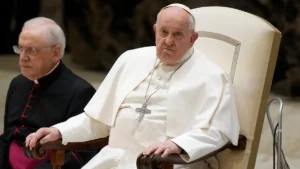Missionaries play a pivotal role in the global spread and outreach of Christianity. They are individuals or groups sent by Christian churches or organizations to evangelize, provide humanitarian aid, and engage in various forms of community development across the world. In this article, we will delve into the concept of missionaries, their historical significance, their role in different Christian denominations, and the impact they have on both religious and secular communities.
The Concept of Missionaries
Definition and Purpose
Missionaries are individuals or groups who are typically affiliated with a Christian church or mission organization and are sent to various regions, both within their own country and internationally, to fulfill specific religious and humanitarian purposes. The primary goal of missionaries is to spread the Christian faith by sharing the message of Jesus Christ, converting non-believers, establishing Christian communities, and providing spiritual guidance.
In addition to evangelization, missionaries often engage in a wide range of humanitarian and developmental activities. These can include offering medical services, education, clean water initiatives, disaster relief, and community development projects. The combination of religious and humanitarian efforts makes missionaries a significant force for positive change in many parts of the world.
Historical Significance
The concept of Christian missionaries has deep historical roots dating back to the early days of Christianity. The Great Commission, a phrase attributed to Jesus Christ in the Bible’s New Testament, is often cited as the foundational mandate for missionary work. In the Gospel of Matthew (Matthew 28:19-20), Jesus instructs his disciples to “go and make disciples of all nations.”
One of the most famous early Christian missionaries was the apostle Paul, who embarked on several missionary journeys throughout the Mediterranean world, spreading the Christian faith to various communities. Paul’s missionary efforts laid the groundwork for the expansion of Christianity beyond its Jewish origins.
Throughout history, Christian missionaries have played a significant role in the spread of Christianity to different continents and cultures, including Europe, Asia, Africa, and the Americas. They have often faced numerous challenges, including cultural barriers, language differences, and hostility from local authorities. Nonetheless, their efforts have left an enduring impact on the religious landscape of the world.
Role of Missionaries in Different Christian Denominations
Christianity is not a monolithic faith but comprises various denominations, each with its unique beliefs, practices, and approaches to missionary work. Here, we will explore the role of missionaries in some major Christian denominations:
Roman Catholic Church
The Roman Catholic Church has a long history of missionary activity, with the Jesuits being one of the most well-known missionary orders. Catholic missionaries have been active in regions worldwide, from Asia to Africa and the Americas. Their work often involves establishing schools, hospitals, and orphanages alongside their religious duties.
The Vatican’s Congregation for the Evangelization of Peoples oversees the Catholic Church’s missionary efforts and coordinates with various missionary societies and organizations. Prominent Catholic missionaries include Saint Francis Xavier, who is considered one of the greatest missionaries of all time for his work in Asia.
Protestant Churches
Protestantism encompasses a wide range of denominations, each with its unique missionary initiatives. Many Protestant missionaries focus on individual Bible study, community engagement, and church planting. Some of the most prominent Protestant missionary organizations include the Southern Baptist Convention’s International Mission Board (IMB) and the Christian and Missionary Alliance (CMA).
In the 19th and 20th centuries, Protestant missionaries played a significant role in Africa, establishing schools and hospitals while spreading their faith. Notable figures like David Livingstone and Mary Slessor became legendary for their work in Africa.
Orthodox Churches
Eastern Orthodox churches, such as the Greek Orthodox Church and the Russian Orthodox Church, also have a history of missionary work. Their efforts often concentrate on regions where Orthodox Christianity is already established, such as Eastern Europe, the Middle East, and parts of Africa.
Orthodox missionaries emphasize the preservation of traditional Christian practices and rituals in their mission areas. They work to strengthen the existing Orthodox Christian communities and protect them in regions where they may be a minority.
Evangelical and Non-Denominational Movements
In recent decades, evangelical and non-denominational Christian movements have gained prominence in missionary work. These groups often emphasize personal evangelism, street preaching, and church planting. They have been particularly active in areas with limited exposure to Christianity, such as remote tribal communities and closed countries where Christianity is restricted.
Prominent evangelical missionary organizations include Youth With A Mission (YWAM), Operation Mobilization (OM), and the International Mission Board (IMB) of the Southern Baptist Convention. They focus on both evangelism and humanitarian projects, aiming to meet both the spiritual and physical needs of the communities they serve.
Impact of Missionaries
Religious Impact
The impact of missionaries on the spread of Christianity is undeniable. They have played a pivotal role in bringing the message of Jesus Christ to people of diverse cultures and backgrounds, resulting in the growth of Christian communities around the world. Many indigenous churches and denominations owe their existence to the efforts of early missionaries.
Missionaries have also contributed to the translation of the Bible into numerous languages, making the Scriptures accessible to millions who would otherwise not have had the opportunity to read or hear them. This translation work has preserved indigenous languages and cultures while providing a spiritual foundation for these communities.
Humanitarian Impact
In addition to their religious impact, missionaries have made significant humanitarian contributions to the regions they serve. They have established schools, hospitals, and orphanages, providing education, healthcare, and care for vulnerable populations. Missionary efforts have played a crucial role in improving the quality of life for many communities, particularly in impoverished and underserved areas.
Furthermore, missionaries often respond to natural disasters and crises, offering immediate relief and long-term support. Their presence and resources are invaluable during times of need, and their commitment to serving others aligns with the Christian principle of love for one’s neighbor.
Challenges and Controversies
Missionary work has not been without its challenges and controversies. Critics argue that some missionaries have been insensitive to local cultures, imposing Western values and beliefs on indigenous populations. This has sometimes led to the erosion of native traditions and practices, sparking tensions and resistance.
Additionally, the history of missionary work is marred by instances of colonialism, where missionary activities were closely tied to the expansion of Western empires. This association has left a legacy of mistrust in some parts of the world, making missionary work more challenging in certain regions.
Conclusion
Missionaries have been integral to the spread of Christianity and the betterment of many communities worldwide. They represent a diverse group of individuals and organizations, each with its unique approach to fulfilling the Great Commission. Through their religious and humanitarian efforts, missionaries have left a profound impact on the global religious landscape and have contributed to positive change in the lives of countless individuals and communities.
While their work has faced challenges and controversies, missionaries continue to adapt and evolve in response to changing global dynamics. Their commitment to sharing the Christian faith and providing aid to those in need reflects the enduring mission of Christianity itself—to love and serve others, both spiritually and materially, as a manifestation of God’s love for humanity.


